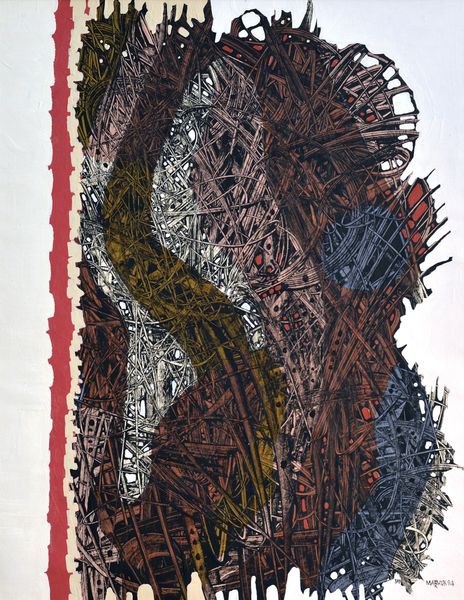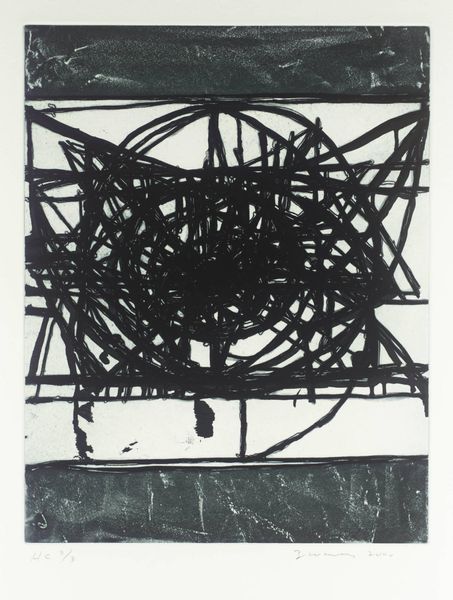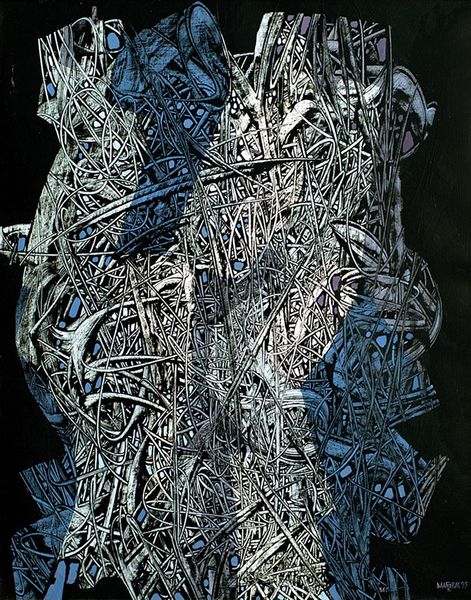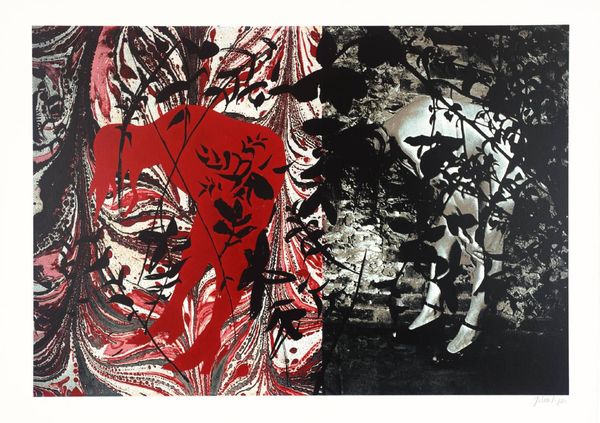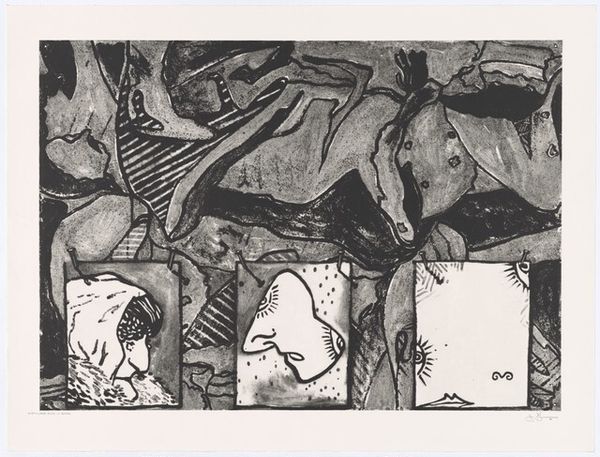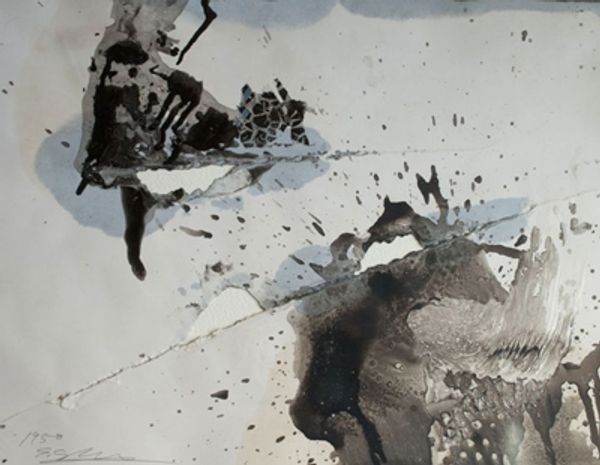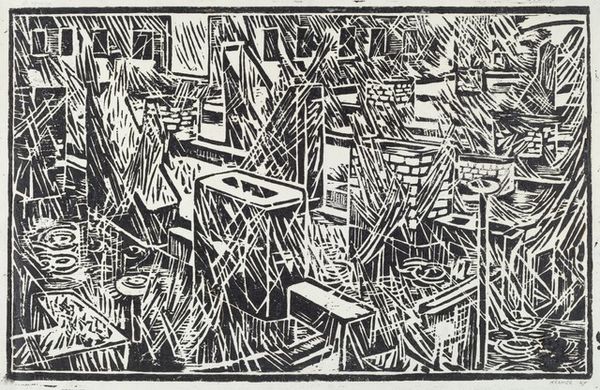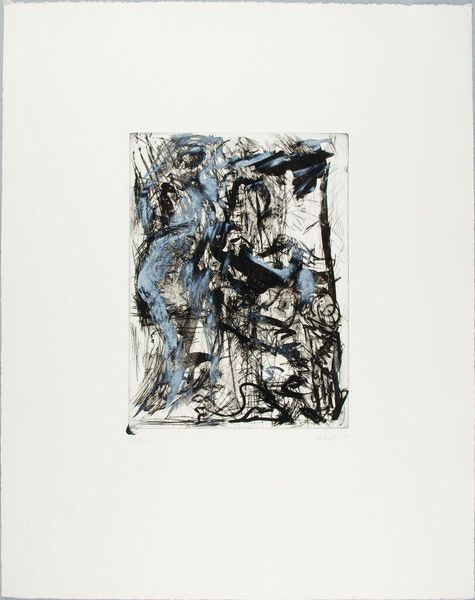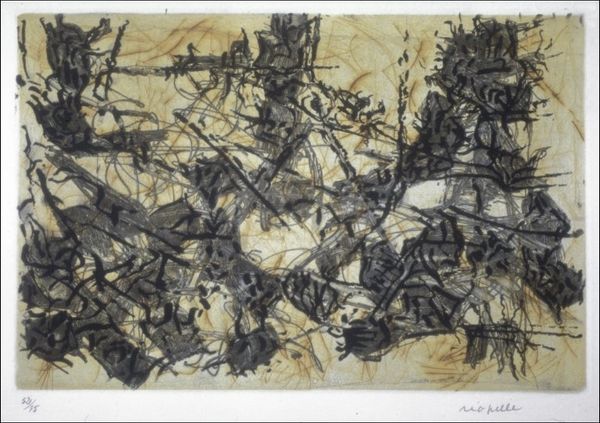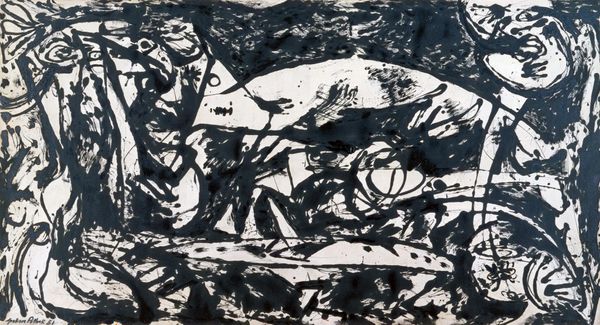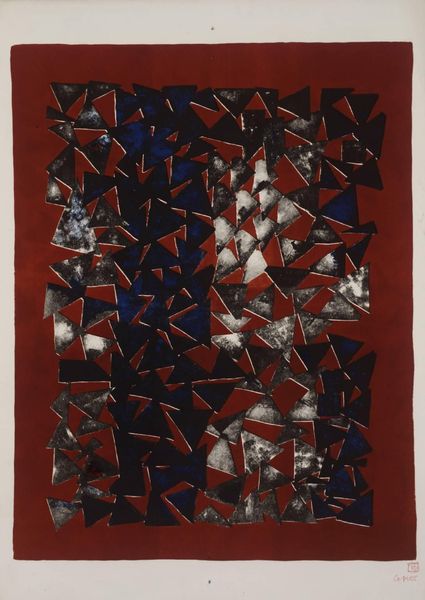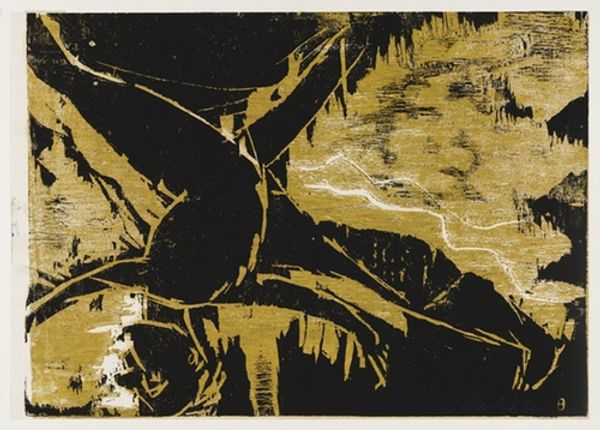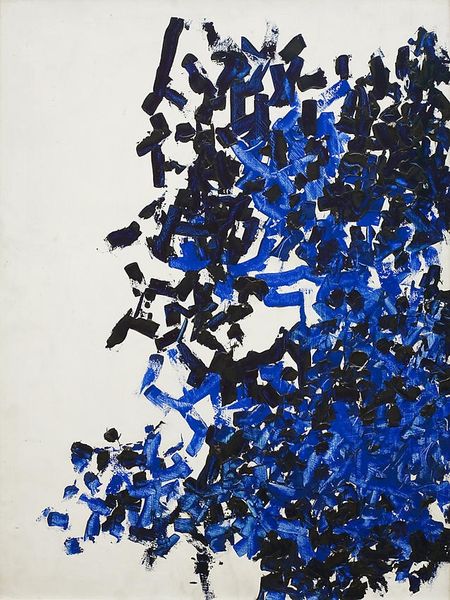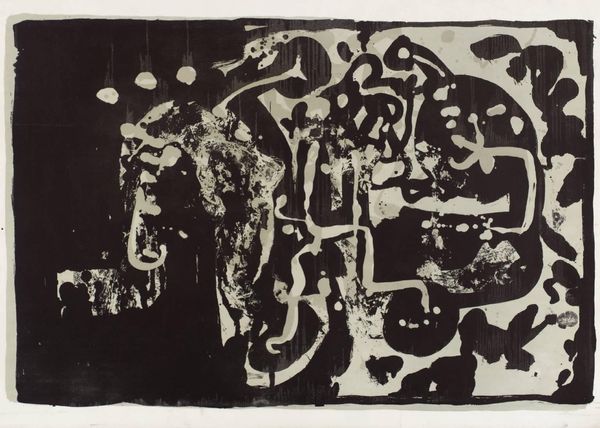
Dimensions: support: 1500 x 2220 mm
Copyright: © Bill Woodrow | CC-BY-NC-ND 4.0 DEED, Photo: Tate
Editor: This is Bill Woodrow's "Untitled (95/04)," made in 1995. It has a chaotic feel, almost as if the image is fragmented. What do you see in this piece? Curator: I see a critique of globalization and its impact on local cultures. The fragmented forms might represent the deconstruction of traditional identities in the face of global forces, particularly in the 90s, don't you think? Editor: That's interesting. I hadn't considered that it could be interpreted as a political commentary. Curator: Consider the context. Woodrow often used found objects to create his sculptures. This drawing might be a reflection on how those objects – and the cultures they represent – are being reshaped and interconnected in ways that are not always equitable. Editor: That gives me a new way to look at the artwork. Curator: Indeed. Art often holds a mirror to the complexities of our world.
Comments
Join the conversation
Join millions of artists and users on Artera today and experience the ultimate creative platform.
tate 10 months ago
⋮
Woodrow says that drawing fulfills his need for 'instant reward'. He works rapidly, using oil paint in crayon form. The elements evolve freely, with different layers of representational and abstract images. The drawings frequently incorporate references to geological or biological forms, such as the organic structures reminiscent of cells or DNA models in Untitled (95/04). Although most of Woodrow''s drawings are untitled, one shown here is called Wilson''s Phalarope, which refers to a small wading bird in the bottom corner. Gallery label, August 2004
